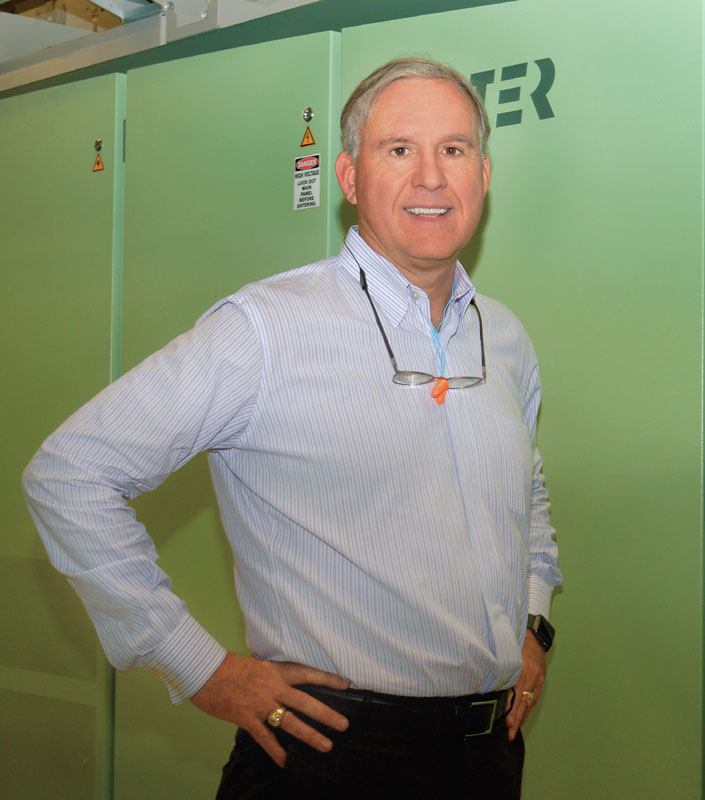

The company worked with a supplier to redesign the shape and increase the size of the standard sliver can to increase efficiency by reducing the number of can changes.Īccording to Rieter America LLC - a Spartanburg, S.C.-based supplier of systems for short-staple fiber spinning - Parkdale has been a very open minded customer, and one that is always open to new products and innovations. One example of the company’s forward way of thinking is the redesigned sliver can Parkdale uses. The company is known for seeking technology and driving innovations in yarn spinning. Parkdale is committed to technology and adopting innovative solutions to stay competitive. Innovation & Automation, Automation, Automation Over the years, Parkdale has embraced automation technologies in all of its operations.

Today, the privately-held company operates 25 plants, in addition to research and development and distribution centers in the United States, Mexico and South America.Ĭotton will always play a significant role at Parkdale, but there is a lot more to the Parkdale story than just cotton. Fifty years after the charter, the company opened a second plant, Parkdale Mills Plant #2 in Gastonia, which doubled the company’s production capacity. The first year, Parkdale produced 425 tons of thread in one manufacturing location. He left behind a company with 3,600 employees and approximately $934 million in annual sales, a far cry from the 200 employees and $11 million in sales when he assumed the presidency in 1961.Parkdale was chartered 1916, and began turning the first spindles in 1918. The following month, Parkdale experienced a personal loss, as Kimbrell passed away at the age of 89.
Parkdale mills full#
In September 2014 Parkdale acquired full ownership of a textile mill, Summit Yarns, which it had co-owned in Mexico since 1997. A 750,000-square-foot former Hanesbrands plant in Rabun Gap, Georgia, was upgraded, the new technology permitting the production of polyester/cotton blended yarn for use in the performance wear sector. Parkdale added to its Georgia operations in 2014. Also in South Carolina in 2010, Parkdale purchased a building in Cherokee County, with plans to open a new yarn plant at the end of the year. In early 2010 it announced a $3 million investment to expand a manufacturing plant in Edgefield County, South Carolina.

ENTERING MEXICAN MARKETĪs the second decade of the 21st century neared, Parkdale grew organically. One of the Unifi mills was shut down, but the others were successfully turned around. As 66 percent owner of the joint venture, Parkdale took over management responsibilities and the resulting yarns were sold under the Parkdale brand. Unifi soon regretted the decision and eagerly returned the operations to the control of Kimbrell and Warlick. It performed so well that publicly traded Unifi, a maker of synthetic materials, paid $279 million in stock for the mills in 1993. They were the foundation of Vintage Yarns Inc., established as one of his side ventures in 1982. Kimbrell was well familiar with the Unifi mills. An even larger transaction was completed in June 1997 when all of the assets of Unifi, Inc., based in Greensboro, North Carolina, were combined with Parkdale's open-end and air-jet spinning assets to create joint venture Parkdale America, LLC. In 1996 the company expanded further with the acquisition of three Dominion Yarn Corp. PASSING OF ROBINSON: 1961īy the mid-1990s Parkdale increased annual revenues to about $400 million. Moreover, after surviving the war as a bomber gunner, Kimbrell was eager to return home to Gastonia. After graduation in 1949, Kimbrell received several job offers, but he decided to take less money and join Parkdale, where he knew no one his age held a college degree, giving him an advantage for advancement. Army Air Forces during World War II, Kimbrell enrolled at North Carolina State University, majoring in textiles at the advice of Robinson. Eventually, he caught the attention of Robinson. At the age of 14, during the height of the Depression, he began working at the company during summer vacations, sweeping the floors and performing other odd jobs. Named after Duke Power, where his father proudly worked for many years, Kimbrell grew up just six miles from Parkdale's main office. Having no son of his own, Robinson found a protégé in W. Bill Robinson, the son of Parkdale's cofounder, served as chief executive officer.


 0 kommentar(er)
0 kommentar(er)
